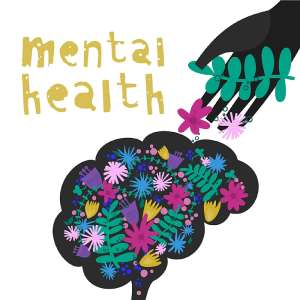
Mental health is a critical yet often overlooked issue in Ghana’s healthcare system. While physical illnesses such as malaria and HIV/AIDS receive significant attention, mental health conditions are frequently neglected due to stigma, lack of awareness, and inadequate resources. Many Ghanaians suffer in silence from conditions such as depression, anxiety, and schizophrenia without proper treatment or support. This article explores the state of mental health in Ghana, its causes, effects, and the way forward.
The State of Mental Health in Ghana
Mental health issues affect a significant portion of Ghana’s population, but the country lacks the necessary infrastructure and resources to address them adequately. According to the World Health Organization (WHO), about 13% of Ghana’s population suffers from a mental health disorder, yet only a small percentage receive professional treatment. Ghana has only a few psychiatric hospitals, with limited trained personnel to meet the growing demand for mental health services.
Causes of Mental Health Issues in Ghana
Several factors contribute to the rising mental health crisis in Ghana, including:
Socioeconomic Stress: Poverty, unemployment, and financial insecurity are major triggers of anxiety and depression. Family and Social Pressures: Cultural expectations, domestic violence, and relationship issues contribute to emotional distress. Substance Abuse: Alcohol and drug abuse, especially among the youth, have led to increased cases of mental illness. Trauma and Abuse: Survivors of physical and emotional abuse, as well as those who experience traumatic events like accidents or conflicts, are at high risk of developing mental disorders. Genetics and Biological Factors: Some mental illnesses, such as schizophrenia and bipolar disorder, have hereditary links.
The Effects of Ignoring Mental Health
Neglecting mental health has far-reaching consequences for individuals, families, and society as a whole:
Increased Suicide Rates: Depression and other untreated mental conditions contribute to rising suicide cases in Ghana, particularly among the youth. Low Productivity: Mental health struggles affect concentration, motivation, and efficiency in workplaces and schools. Social Isolation: Many people with mental disorders face rejection and discrimination from society, leading to loneliness and worsening conditions. Homelessness and Vulnerability: Due to a lack of support, some individuals with severe mental health conditions end up living on the streets without proper care.
Challenges in Addressing Mental Health in Ghana
Despite growing awareness, several barriers hinder mental healthcare in Ghana:
Stigma and Cultural Beliefs: Many Ghanaians associate mental illness with spiritual causes, leading affected individuals to seek help from prayer camps and traditional healers rather than medical professionals. Limited Mental Health Facilities: There are only a few psychiatric hospitals in Ghana, with most located in the southern part of the country. Shortage of Mental Health Professionals: Ghana has a very low ratio of psychiatrists, psychologists, and counselors to its population, making access to mental healthcare difficult. Weak Policy Implementation: Although Ghana passed a Mental Health Act in 2012 to improve mental healthcare, implementation remains slow due to inadequate funding and support.
The Way Forward
To improve mental health in Ghana, a comprehensive and multi-sectoral approach is needed:
Public Awareness Campaigns: Educating the public about mental health through media and community outreach can help reduce stigma and encourage people to seek help. Integrating Mental Health into Primary Healthcare: Training general healthcare workers in mental health services can improve early diagnosis and treatment. Expanding Mental Health Facilities: The government should invest in more psychiatric hospitals and rehabilitation centers across the country. Strengthening Policies and Funding: Full implementation of the Mental Health Act, along with increased government funding, will ensure better mental healthcare delivery. Encouraging Counseling Services in Schools and Workplaces: Institutions should provide mental health support to students and employees to promote well-being.
Mental health is just as important as physical health, yet it continues to be overlooked in Ghana. Without proper attention, mental health disorders will continue to impact individuals, families, and society. It is time for the government, healthcare institutions, and communities to work together to prioritize mental health, provide adequate resources, and break the stigma surrounding mental illness. By doing so, Ghana can create a healthier and more productive society for all.


